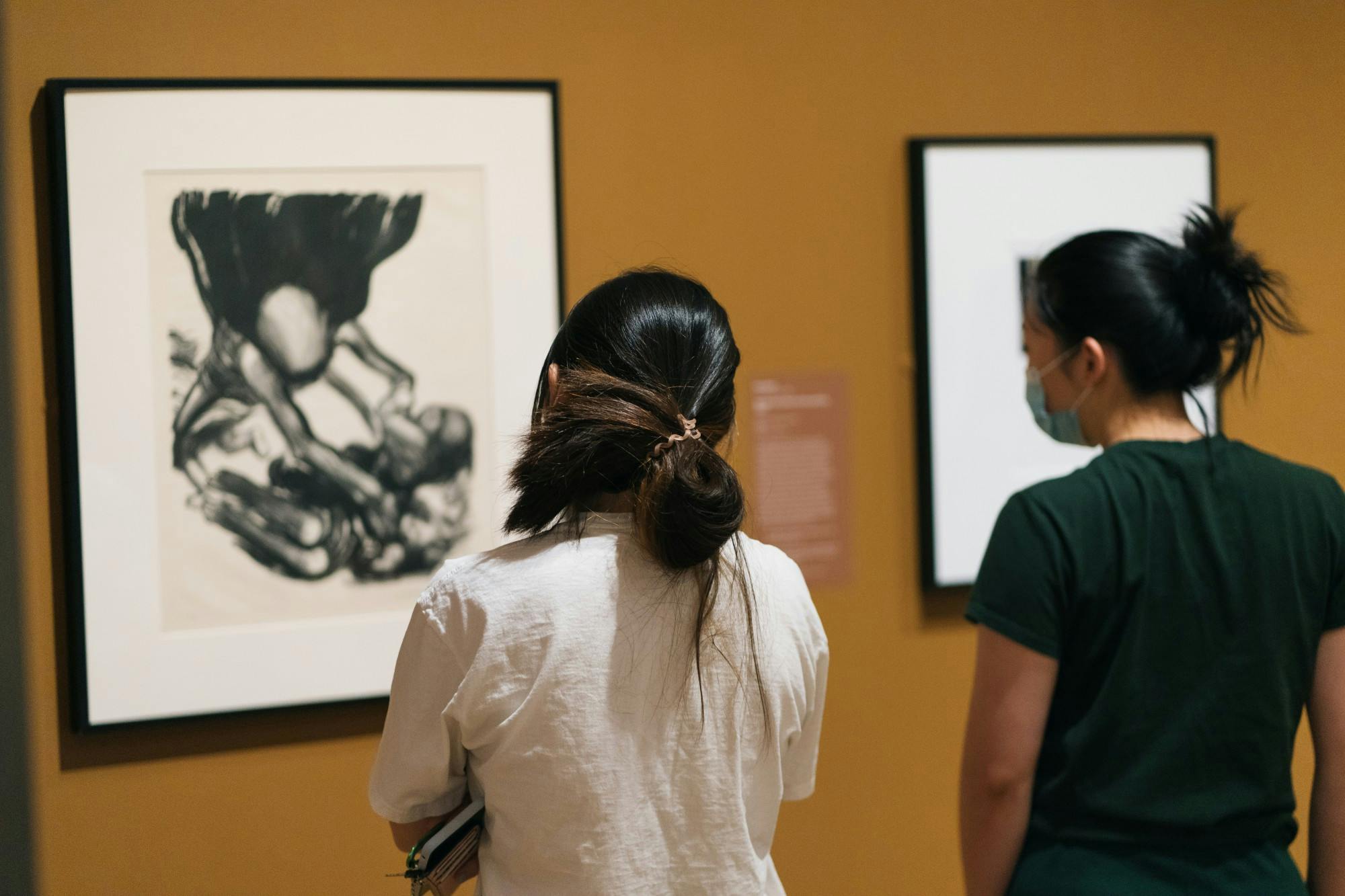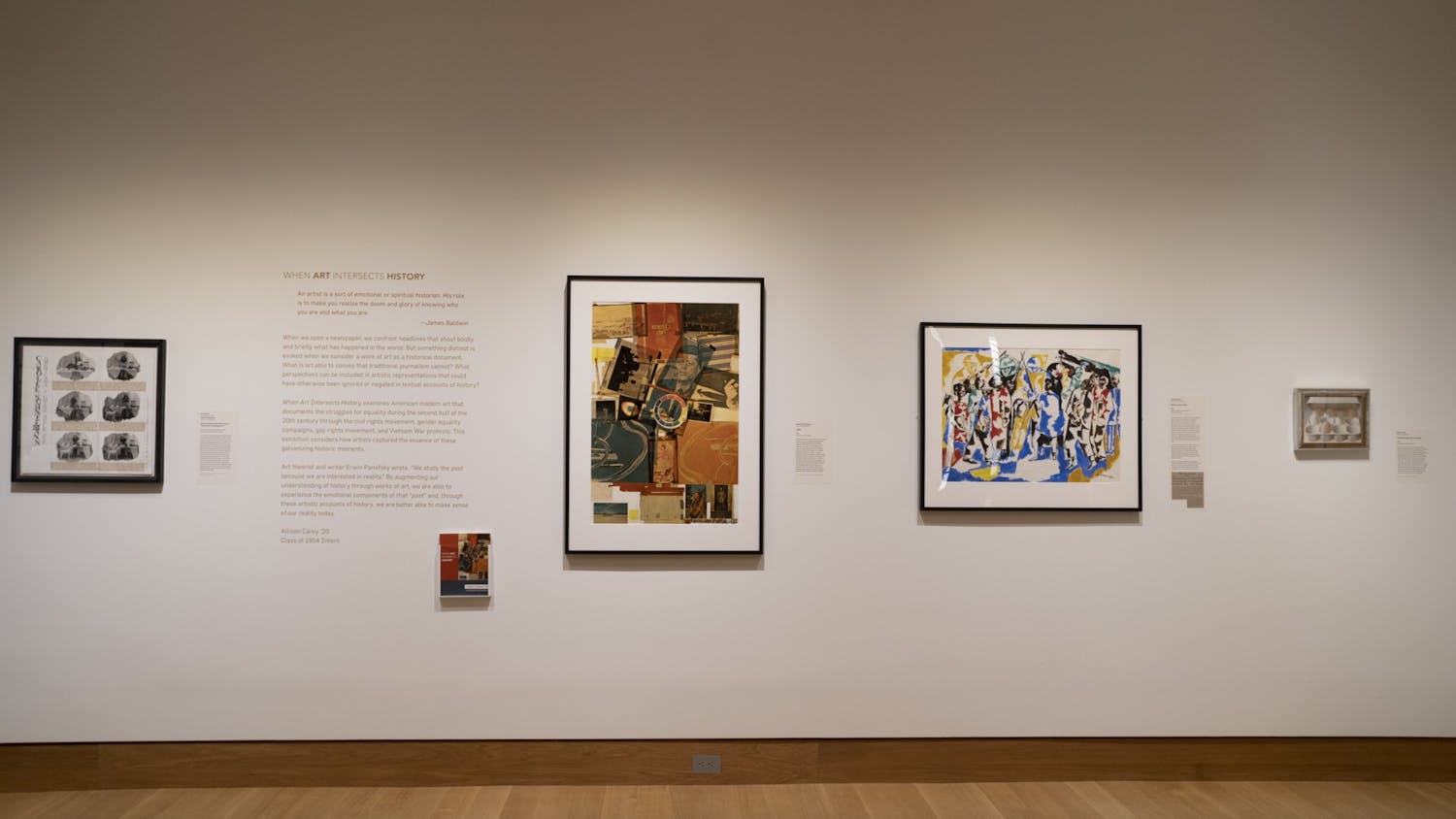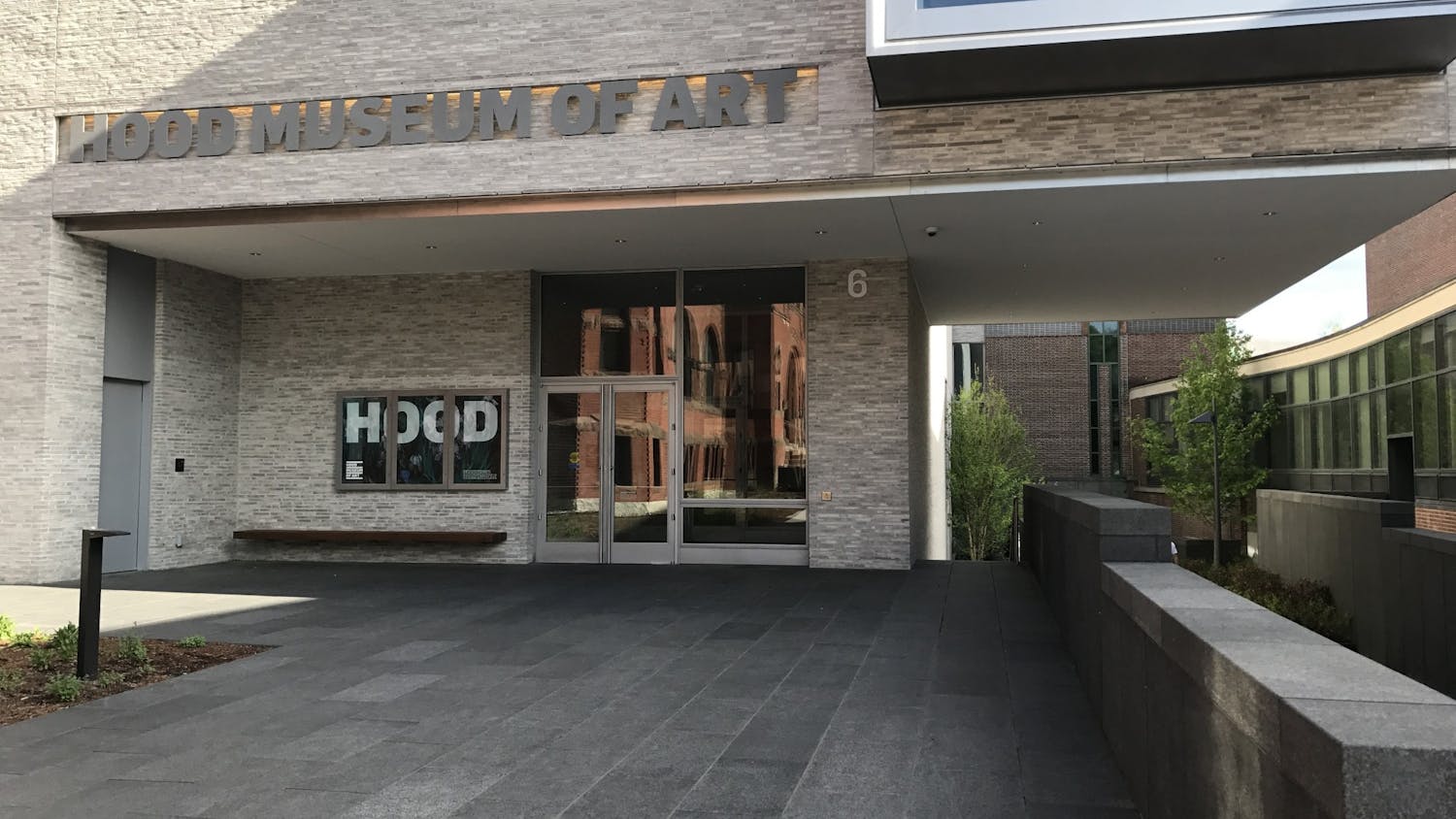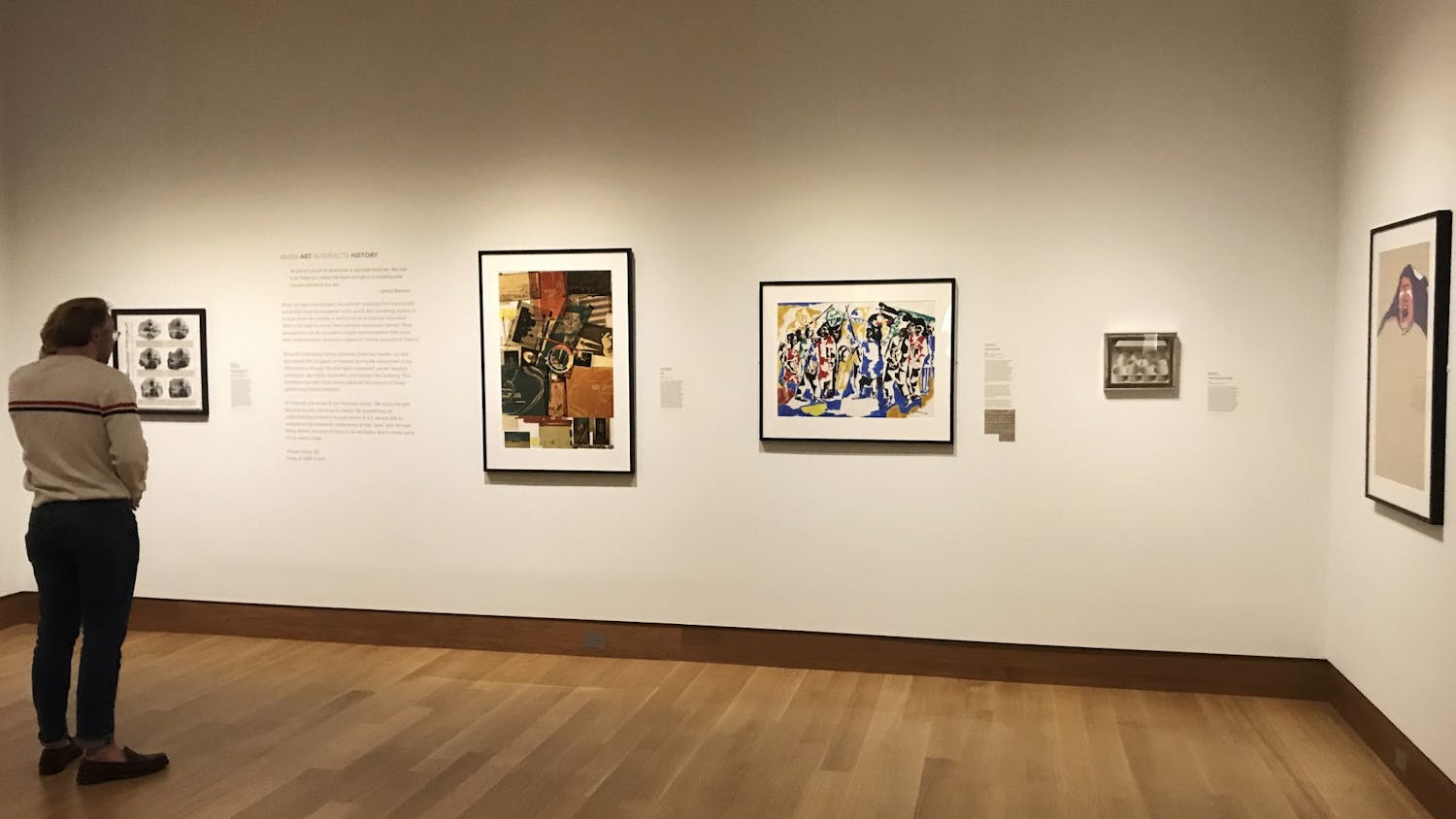Last week, the Hood Museum of Art hosted recent graduate Kensington Cochran ’20 for its second talk in the “Virtual Space for Dialogue” series. At the talk, Cochran presented a collection she curated as the Hood’s Conroy Intern last year that explores the intersection between art and trauma.
Cochran, who graduated with a major in neuroscience and a minor in art history, created her collection, titled “The Soul Has Bandaged Moments,” to urge observers to challenge their understanding of trauma and post-traumatic stress disorder as both psychological and physiological diseases and to explore the role art can play as a mechanism of healing.
“Because both scientific definitions and artistic responses to trauma are so fluid and evolving, I wanted to create a space that was a conversation more than anything else,” Cochran said.
The gallery talk was originally planned for last spring, but was rescheduled due to the pandemic. With the help of Hood staff, it was adapted to a Zoom webinar, during which Cochran gave a presentation and led a virtual walkthrough of the collection displayed in the Gutman Gallery. The presentation was followed by a question and answer session facilitated by Cochran’s supervisor and Hood Foundation associate curator of education Neely McNulty.
The virtual webinar was attended by roughly 60 undergraduates, faculty members and community members — a turnout that impressed curator of academic programming Amelia Kahl ’01, who noted that attendance surpassed the capacity of the Gutman Gallery.
“We’ve had a much larger turnout for the virtual talks than we might have had in person,” Kahl said.
Kahl described Kensington as a “brilliant and creative mind,” noting that she was excited to have an intern who brought a unique perspective to the role.
“We don’t get a whole lot of neuroscience majors as [Hood] interns. We think it's really important that her talk, particularly around these themes of PTSD, is able to be shared, widely and publicly.”
During the virtual talk, Cochran spoke of the interdisciplinary nature of her exhibit and explained why she chose the pieces she did.
“While science strives to understand the cause and chemical solution to PTSD, art has borne witness again and again to trauma and its healing process,” said Cochran.
Cochran selected pieces created by artists who have undergone trauma stemming from experiences with war, apartheid, gender-based violence, discrimination and systematic oppression.
“I wanted to include a really diverse set of perspectives because I frankly don’t have the authority to speak on the experiences of a lot of the populations represented in the show, and I wanted to make sure these voices were reflected,” said Cochran.
Cochran also explored art created by bystanders and community members who have experienced trauma.
As an undergraduate, Cochran interned with the Atlanta-based Grady Trauma Project, an organization specializing in longitudinal research and treatment for sufferers of PTSD.
Cochran’s exposure to civilian trauma through the Grady Trauma Project furthered her interest in neuroscience and the study of PTSD, ultimately motivating her to take a more complete look at the disorder.
“The people coming through that emergency department were socio-emotionally vulnerable — they were people who would not have gotten help elsewhere,” said Cochran. “There were lives full of trauma that were not spoken about, and that for a while weren’t even included in the realm of PTSD.”
As an undergraduate, Cochran led Dartmouth Emergency Medical Services and researched pharmaceutical alternatives for PTSD treatment under the late psychology and brain sciences professor David Bucci, to whom Cochran’s gallery is dedicated. Cochran later researched the neurochemical changes of PTSD on decision-making with PBS professor Alireza Soltani.
Cochran grew up attending gallery exhibitions, as her mother was a gallery curator.
“That was a big part of my upbringing,” said Cochran. “I was premed at Dartmouth — I knew I wanted to go into science, but I really didn’t want to lose that part of my life.”
Her exhibit was named after a photolithograph — the transfer of an etching photographically onto another surface — of the same name by American artist Leslie Dill. This piece served as the centerpiece of Cochran’s gallery.
“I saw that piece and I was instantly so struck by it. I felt like it really spoke to everything I was trying to articulate in the show,” said Cochran.
Dill created the photolithograph by painting the words of an Emily Dickinson poem of the same title on the bodies of friends and family. She then photographed them, visually blurred out the defining elements of the female anatomy and printed the final product on mulberry paper which was then hand-stitched onto Arches buff paper by her collaborator, Jennifer Luk.
Cochran believes that Dill’s piece speaks to gender-based violence — a critical and often-overlooked form of trauma.
“I see a really physical manifestation of psychological injury represented,” said Cochran.
Cochran said she met with English professor Ivy Schweizer to better understand Dickinson’s poem and ultimately decided to include a copy of the poem as an object in her collection. She wrapped up the virtual presentation by reading the poem aloud.
While her past research experiences have aimed at finding pharmaceutical interventions for PTSD, Cochran acknowledged art’s potential in the realm of trauma healing.
“I think that art has been able to do a lot already — it’s helped individuals with trauma in a way that science hasn't gotten to yet, and so I think it's very inspiring and very hopeful,” said Cochran.
“The Soul Has Bandaged Moments” will be on display in the Gutman Gallery in the Hood through May 16. A recorded version of Cochran’s gallery talk will be available on the Hood’s YouTube channel.




